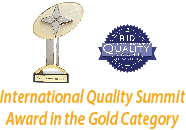
DOCUMENTS | Medicine Documents
Hypertension
Hypertension and Race
African-Americans are more likely to develop hypertension -- and to develop it at a younger age. Genetic research suggests that African-Americans seem to be more sensitive to salt. Diet and excessive weight can play a role, as well.
Hypertension and Sodium
Sodium, a major component of salt, can raise blood pressure by causing the body to retain fluid, which leads to a greater burden on the heart. The American Heart Association recommends eating less than 1,500 milligrams of sodium per day. You'll need to check food labels and menus carefully. Processed foods makes up the majority of our sodium intake. Canned soups and lunch meats are prime suspects.

(Image from internet)
Hypertension and Stress
Stress can make one's blood pressure spike, but there's no evidence that it causes high blood pressure as an ongoing condition. However, stress may affect risk factors for heart disease, so it may have an indirect connection to hypertension. Stress may lead to other unhealthy habits, such as a poor diet, alcohol use, or smoking, which can contribute to high blood pressure and heart disease.
Hypertension and Weight
Being overweight places a strain on the heart and increases your risk of high blood pressure. That is why diets to lower blood pressure are often also designed to control calories. They typically call for cutting fatty foods and added sugars, while increasing fruits, vegetables, lean protein, and fiber. Even losing 10 pounds can make a difference.
Hypertension and Alcohol
Drinking too much alcohol can increase your blood pressure. Guidelines from the American Heart Association state that if you drink alcohol, you should limit the amount to no more than two drinks a day for men, or one a day for women. They define a drink as one 12-ounce beer, four ounces of wine, 1.5 ounces of 80-proof spirits, or one ounce of 100-proof spirits.
Hypertension and Caffeine
If caffeine can make you jittery, can it also raise your blood pressure? It might have a temporary effect, but studies haven't shown any link between caffeine and the development of hypertension. You can safely drink one or two cups a day, according to the American Heart Association.
Hypertension and Pregnancy
Gestational hypertension is a kind of high blood pressure that occurs in the second half of pregnancy. Without treatment, it may lead to a serious condition called preeclampsia that endangers both the mother and baby. The condition can limit blood and oxygen flow to the baby and can affect the mother's kidneys and brain. After the baby is born, the mother’s blood pressure usually returns to its normal level.
Hypertension and Medicine
Cold and flu medicines that contain decongestants are one of several classes of medication that can cause blood pressure to rise. Others include NSAID pain relievers, steroids, diet pills, birth control pills, and some antidepressants. If you have high blood pressure, talk to you doctor about what drugs and supplements you are taking that may affect blood pressure.
'White Coat' Hypertension
Some people only have a high reading in the doctor's office, perhaps because they're nervous. Some will only have high blood pressure readings sporadically. Those people may have a higher chance of developing high blood pressure, a recent study shows. To get a more accurate reading, take your blood pressure at home, chart the readings, and share them with your doctor. It is also a good idea to bring in your home monitor in for a check of the device and your technique.
Hypertension and Children
While hypertension is more often a problem for older people, even children can have high blood pressure. "Normal" blood pressure varies based on a child’s age, height, and sex, so your doctor will need to tell you if there is a concern. Children are at greater risk if they are overweight, have a family history of the illness and if they're African-American.
(From www.webmd.com)


